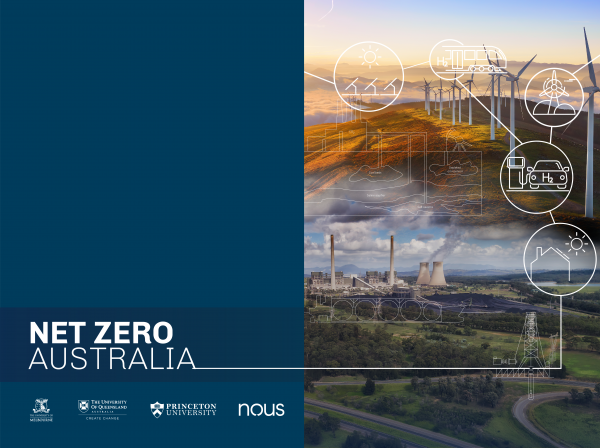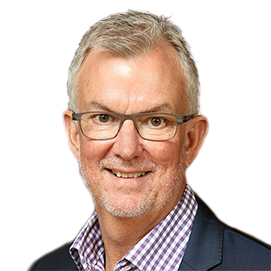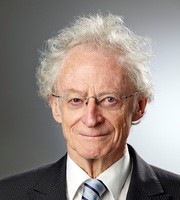Mobilisation: How to make net zero happen

More Information
The Net Zero Australia (NZAu) partnership released its Mobilisation report, How to make net zero happen, on 12 July 2023. The report follows the final modelling report, which projected the energy mix, costs and other parameters for six net zero scenarios. It concluded that net zero is both an immense challenge and a once in a generation, globally significant and nation building opportunity.
The Mobilisation report, How to make net zero happen, asks what governments, business and households should do to accelerate towards this goal. It tackles questions such as:
- Which net-zero options should we accelerate? Onshore wind and solar are well underway; should we also support offshore wind, carbon capture and storage, and nuclear? How?
- What role in global decarbonisation do we want to play? How can we phase out fossil fuel exports while building exports of clean hydrogen and minerals, often to the same customers?
- How should we share net zero’s costs and benefits among Australians? Net zero will increase costs for all energy consumers and affect different groups differently. How do we minimise these impacts and share benefits with all Australians fairly?
- How can we roll out renewables while improving the environment? Renewables and networks will change landscapes and clear land. How can we reach net zero emissions whilst protecting and potentially even improving biodiversity and agriculture?
- What more should governments, businesses, communities, and households do? And should they work together better? How?
NET ZERO AUSTRALIA MOBILISATION REPORT
The Mobilisation report was launched at a public event hosted by The University of Melbourne. A recording of the event, the report, the event presentation, and press release can be downloaded from the Net Zero Australia website.
Download the report and presentation
ABOUT NET ZERO AUSTRALIA
Launched in 2021, the Net Zero Australia study provides rigorous and independent analysis of the pathways by which Australia can fully decarbonise our domestic economy and exports. It is a grant-funded partnership of The University of Melbourne, University of Queensland, Princeton University and the Nous Group. Read more about the Net Zero Australia study and the Mobilisation: How to make net zero happen event here. The study's final modelling results can also be found on the NZAu website.
Steering Committee
Robin Batterham joined the Melbourne School of Engineering as Kernot Professor in the Department of Chemical and Biomolecular Engineering in 2010. He is past President of the Academy of Technology and Engineering (2007-2012), former Chief Scientist of Australia (1999-2005), and for over 20 years Global Head of Innovation (and other positions) at Rio Tinto.

Project Director - University of Melbourne
Michael Brear is a mechanical engineer and the Director of the Melbourne Energy Institute (MEI) at the University of Melbourne. MEI facilitates the University’s research on the technical, economic, environmental and social impacts of energy. Michael is a Fellow of the Australian Academy of Technology and Engineering, the Combustion Institute, Engineers Australia and the Australian Institute of Energy.

Project Director – The University of Queensland
Simon Smart is Deputy Director of the Dow Centre for Sustainable Engineering Innovation and an Associate Professor in the School of Chemical Engineering at The University of Queensland. His research is centred around the sustainable production and use of energy and chemicals – including the development of enabling technologies and processes for the production of clean energy, materials and water.
Project Director - Nous Group
Richard Bolt is a Principal at Nous Group. Richard has had a diverse career in public advocacy and government. He has led organisations ranging from a community-based advocacy group to one of the largest government departments established in Australia. His achievements include lead roles in national carbon and energy policy reform; driving technology innovation in energy, resources and agriculture. Richard was a member of the Stakeholder Advisory Group to Chief Scientist Alan Finkel for the development of a national hydrogen strategy. He was also a member of the Advisory Panel to the Energy Security Board on the post-2025 design of the national electricity market.
Independent Member, Net Zero Australia
Katherin Domansky is a highly experienced and motivated leader in strategy, commercial and business development, with a strong reputation for delivery across the commercial value chain for major integrated energy projects. She has extensive experience across the energy value chain, with proven leadership of multi-disciplinary teams and a collaborative mindset. Katherin has international expertise, having lived overseas as well as working on international transactions in global companies.

Project Director – Princeton University
Chris Greig is the Theodora D. ’78 & William H. Walton III ’74 Senior Research Scientist in the Andlinger Center for Energy and the Environment at Princeton University and Adjunct Professor, School of Chemical Engineering at The University of Queensland. An entrepreneur and former CEO with extensive industry experience, Chris conceived the Rapid Switch Initiative, a major international, interdisciplinary research effort that aims to accelerate progress on climate change by identifying and resolving the critical bottlenecks that slow our progress towards deep decarbonisation. Prior to joining Princeton, Chris was Director of the Dow Centre for Sustainable Engineering Innovation at The University of Queensland and Director of the UQ Energy Initiative. With fellow researchers, Eric Larson and Jesse Jenkins, Chris has co-led Princeton’s ground-breaking Net-Zero America study.



